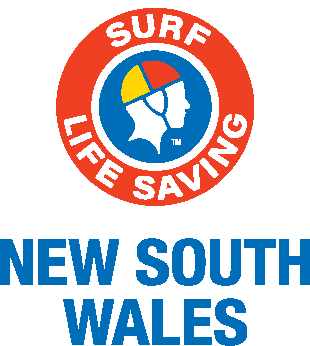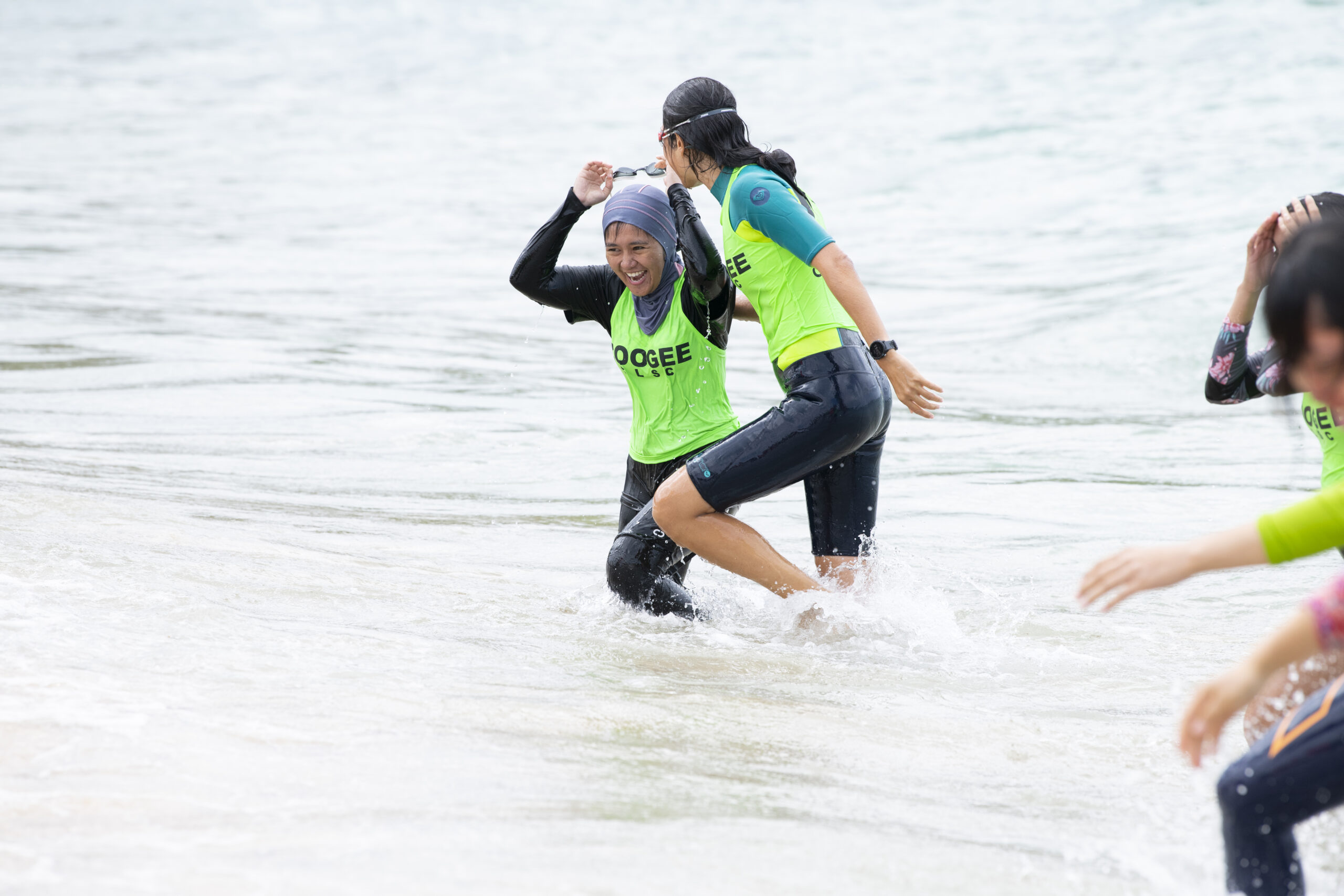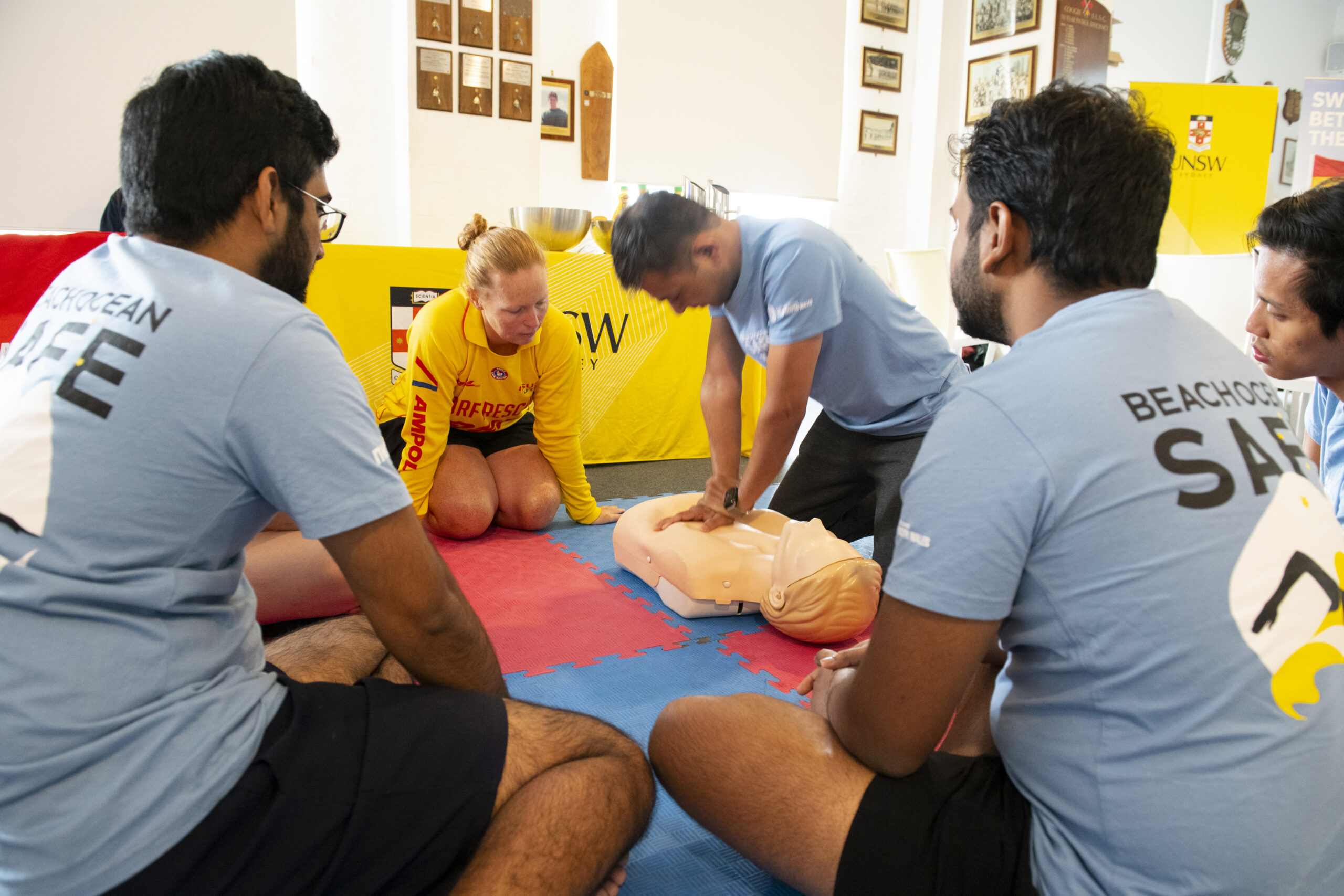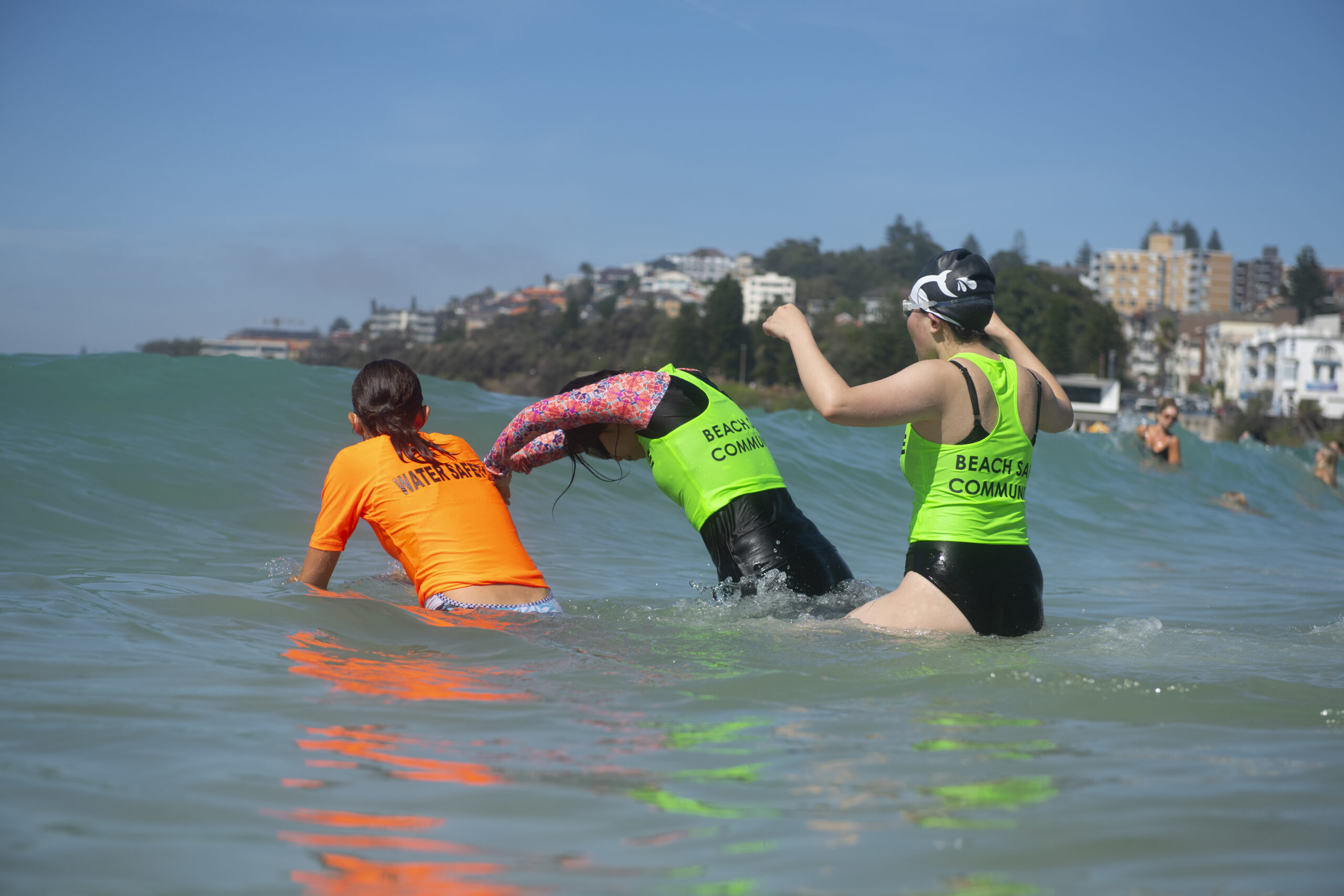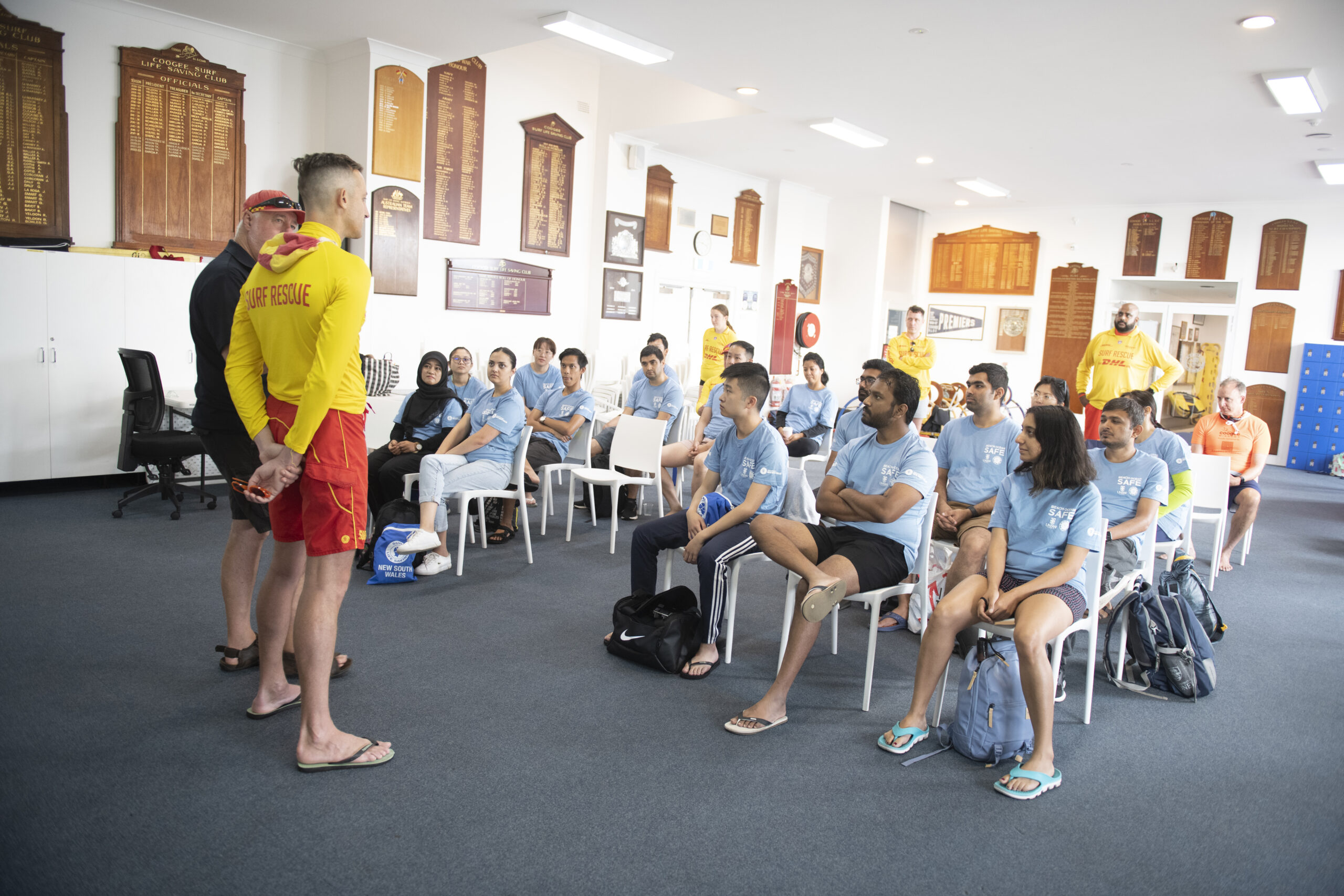A specially designed pilot beach safety program has been successfully delivered at Coogee SLSC, as lifesavers across NSW continue to explore methods to better educate and empower communities to feel safe when visiting the coastline.
The Beach Ocean Safe (BOS) Program, initially a collaboration between the University of NSW Health Unit and Coogee SLSC’s Community Education team; with plans to expand across the state, is an opportunity for those from a wide range of backgrounds – specifically international students and people from culturally and linguistically diverse (CALD) communities – to develop and refine their ocean skills in a nurturing environment.
Statistics presented in the 2022 NSW Coastal Safety Report indicate that more than half of those who drowned in NSW between 1 July 2021 and 30 June 2022 were from these communities.
As a means of directly addressing this, the first in what is hoped to be a significant series of programs was completed at Coogee SLSC earlier this month, with support from Tamarama SLSC and Cronulla SLSC.
The course was delivered over two weekends in late March before participants ‘graduated’ on 1 April from the program. Primary learnings were how to enter the ocean and manage waves; how to dive under waves; and how to float, tread water and dive under the water.
This was supported by CPR and First Aid training and theory sessions on rip currents, waves, and beach hazards.
“Since I came here to Australia, I’ve never been in the water because it was a bit scary for me,” participant, Eli Talebi said.
“I learned many new skills. I learned how to do CPR. I also learned how to get in the water safe. And during the session, I was feeling completely safe because there were lifesavers that were looking after us.”
Indeed, more than 20 lifesavers from Coogee SLSC alone attended the program as support, many under 18 and enthusiastically passing on their knowledge.
“The lifesavers were great today, and they made us so much more comfortable in the water,” fellow participant, Gunjan Chaudhuri said.
“They were taking care of us at every second and they helped us overcome the fear of water.”
Oliver Jackson, UNSW’s Water Safety Assistant in the Health Unit, said the program helps to assimilate those from CALD backgrounds into the Australian community.
“International students who come from countries that don’t necessarily have this strong swimming culture, they can struggle to find a sense of well-being in the Australian beach and ocean culture,” he said.
“I still remember at the first session when they were told that by the end of the program they’d be able to swim out past the waves and be able to float in the ocean, and they all looked absolutely shocked.
“But sure enough, by the end, it was incredible. There were smiles and joy just radiated off everyone’s face because of what they’d achieved.”
Doug Hawkins of Coogee SLSC, the Lead Trainer of the program, was proud of its success and the impact it will have on those who participated.
“The BOS program exceeded the expectations of all involved, and I’m impressed by the students’ new skills base from the start of the course to their Assessment at the end, where all the students showed a major increase in ocean skills and knowledge,” he said.
“I’m confident that the BOS program has now set a solid platform for its ongoing delivery through surf clubs across the state and will have long term benefits to the wider community and surf clubs alike.”
“I’d love to see it being run at several different Surf Life Saving clubs up and down the coast,” Oliver agreed.
“I think through the BOS program and the development of it, we can look to ensure that international students come here and they are safe to enjoy the beach.”
PHOTOS: Doug Hawkins
Monday 17 April 2023
